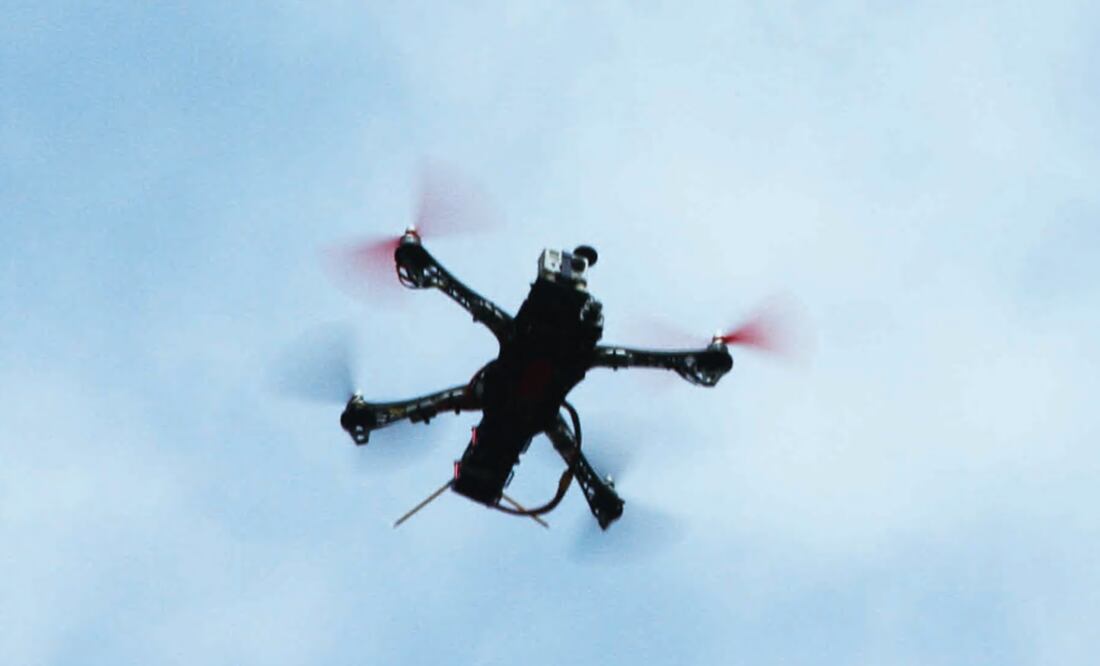Más Información
Members of the Jalisco New Generation Cartel (CJNG) are using drones full of explosives to attack their rivals in Tepalcatepec, Michoacán.
Journalist Denise Maerker revealed the information and explained the drug cartel uses C-4 , an explosive used during wars.
In an interview with local vigilante groups , they said that after a clash with the deadly cartel they found two drones and four explosives. This way, vigilantes discovered the CJNG is creating new weapons by strapping bombs to the devices.
Vigilante groups emerged in the region known as “Tierra Caliente” years ago after criminal organizations terrorized entire communities. However, the region registered a sudden surge in violence on July 25, when criminals attacked the Tepalcatepec vigilante group in a bid to gain control over the community.
Recommended: Colombian authorities deliver major blow to the Jalisco New Generation Cartel
This is not the first time the Jalisco New Generation Cartel uses drones. The Attorney General’s Office launched an investigation in May and the drug cartel now faces organized crime and terrorism charges.
Back in May, the Attorney General’s Office found several drones and C-4 explosives in Puebla. The CJNG also used these types of explosives in Guanajuato.
Tierra Caliente
Tierra Caliente is region located in the Michoacán. During the last decade, the region has registered a surge in crime and violence due to the presence of violent cartels such as CJNG , Los Viagras, Los Caballeros Templarios, and La Familia Michoacana.
Vigilante groups operate in the region to protect themselves from the criminals since 2013.
This region is characterized by violence , crime, poverty, and drug trafficking.
Recommended: Jalisco New Generation Cartel releases new video, guarantees peace in Guanajuato
The CJNG
The CJNG was originally known as the Zeta Killers and first appeared in 2011, with the display of the bodies of 35 alleged members of Los Zetas. Although the criminal organization is based in Jalisco, it also operates in Colima, Michoacán, the state of Mexico, Guerrero, and Guanajuato.
The Cártel Jalisco Nueva Generación allegedly served as an armed group for the Sinaloa Cartel until 2013.
In 2015, the Mexican government declared CJNG one of the most dangerous cartels in the country. In October 2016, the U.S. Department of the Treasury described the group as one of the world’s “most prolific and violent drug trafficking organizations.”
According to some analysts, the CJNG has operations throughout the Americas, Asia, and Europe.
Moreover, the brutal Mexican cartel has been linked to several mass graves in southwestern Mexico and shot down an army helicopter in 2015.
The Jalisco New Generation Cartel distributes drugs in Los Angeles, New York, Chicago, and Atlanta. Furthermore, this drug trafficking organization is “one of the most powerful and fastest-growing cartels in Mexico and the United States” as it has a presence in at least 24 of 32 Mexican states.
This drug cartel is characterized by its rapid expansion and its willingness to “engage in violent confrontations with Mexican Government security forces and rival cartels.”
Nemesio Oseguera Cervantes, “El Mencho”
The DEA, the U.S. Drug Enforcement Administration, labeled Nemesio Oseguera Cervantes, better known as “El Mencho,” as the most wanted man, even before cartel leaders with a long history such as Ismael "El Mayo" Zambada and Rafael Caro Quintero.
In the U.S., the DEA placed billboards all over Los Angeles, California, offering a USD 10 million reward in exchange for information that leads to the arrest of Nemesio Oseguera Cervantes.
In 2018, the drug trafficker was named the third most wanted criminal by the DEA.
In recent months, the drug lord’s inner circle was severely weakened after his son was extradited to the U.S. and the arrest of Jessica Johanna Oseguera Gonzalez, “La Negra.” According to authorities, they were the criminal’s main financial operators.
According to the DEA, the drug trafficker has created a clandestine safety zone in the mountainous areas in Jalisco, Michoacán, and Colima. The criminal does not set foot in major cities or restaurants and lives in the mountains. This strategy is common among cartel leaders.
Although “El Mencho” joined crime in the 90s, he became an infamous cartel leader in the last 5 years and it’s now the most wanted man by the DEA
In 1994, the infamous cartel leader was sentenced to 3 years in prison for heroin trafficking in the U.S. He was later deported to Mexico, worked as a police officer in Jalisco, and then joined the now-defunct Milenio Cártel. When the cartel leader, Ignacio Coronel “El Rey del Cristal,” was murdered in 2010, the CJNG was created.
During the Peña Nieto administration, authorities spent over MXN 5 million a day to arrest “El Mencho.”
gm







